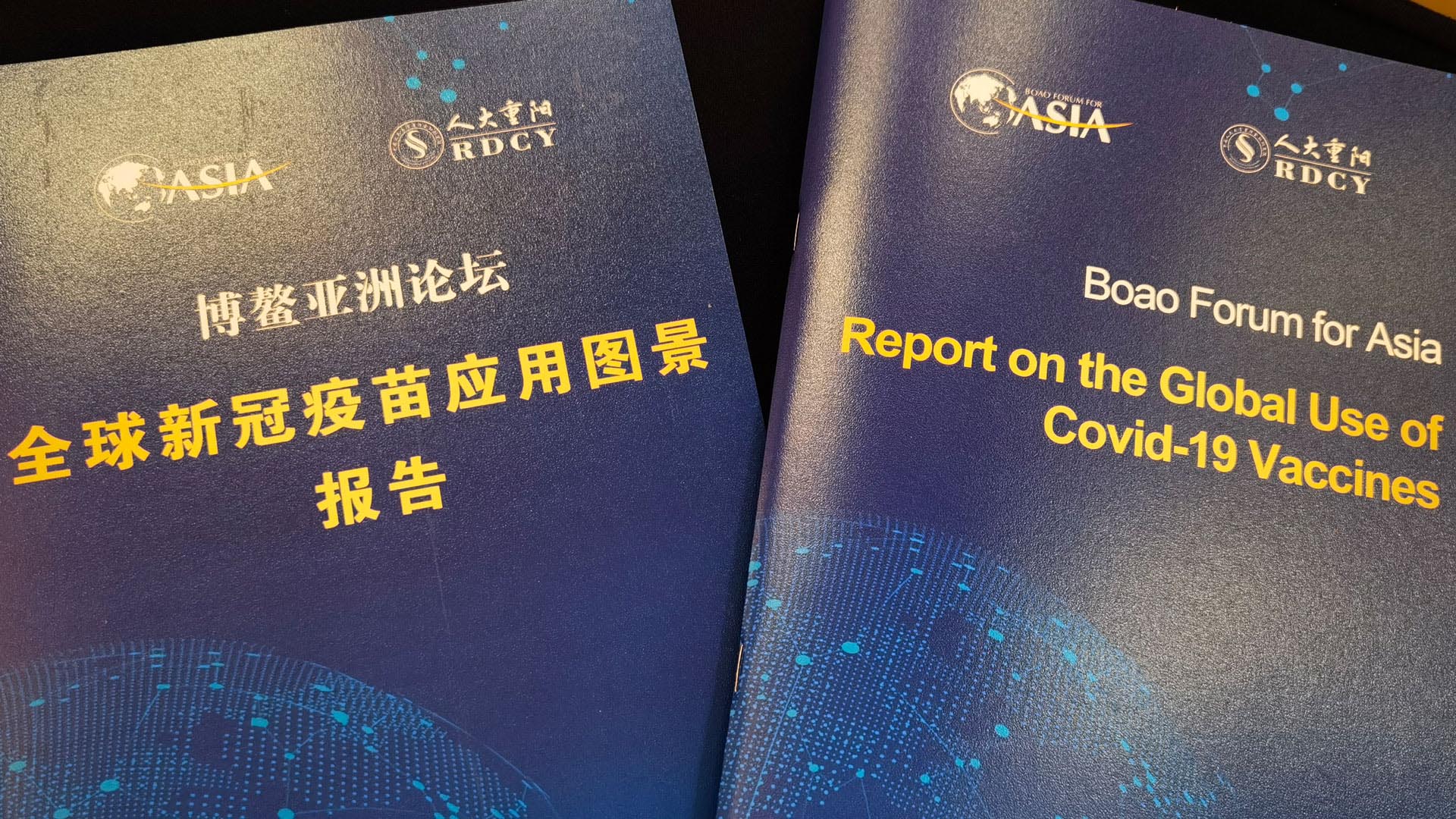02:25

The world will have enough coronavirus vaccines to reach herd immunity before the end of the year, but global inequalities mean developed nations are likely to benefit as poor countries suffer, according to a new report published by the Boao Forum for Asia (BFA) in Beijing on Thursday.
There's a serious "vaccination gap" between developed and developing countries, the report warns, calling for a global coordination drive to guarantee the vaccines are fairly distributed.
By July 20, 26.5 percent of the global population had received at least one dose of a COVID-19 vaccine, the report says. Western countries generally lead other countries in the rate of vaccinations. But in a stark reminder of global inequalities, less than one percent of the population in low-income countries have received at least one dose.
"The WHO said the world needs 11 billion doses of vaccines to achieve the goal of having 70 percent of the global population inoculated. Globally, the total production capacity of COVID-19 vaccines is expected to reach this number by the end of 2021. But the question is whether or not the vaccines can be fairly distributed across the world," said Li Baodong, secretary general of the BFA.
The report says the U.S. has stockpiled a vast number of vaccines at home. But there is a tremendous gap between the amount they've offered to the rest of the world, and the quantities they're capable of providing. The European Union has mainly exported vaccines to middle- and high-income countries.

The Boao Forum for Asia releases a report on the global use of COVID-19 vaccines in Beijing, China, July 29, 2021. Fu Bo/Boao Forum for Asia
The Boao Forum for Asia releases a report on the global use of COVID-19 vaccines in Beijing, China, July 29, 2021. Fu Bo/Boao Forum for Asia
On the other hand, the report says Chinese vaccine exports have exceeded the total of all other countries and have mainly been sent to developing countries.
Shao Yiming, researcher at the Chinese Center for Disease Control and Prevention, who contributed to the report, said vaccines are essential to preventing further waves of the virus.
"Last year, the wave of outbreaks was mainly in developed countries in Europe and America while the current outbreaks are mainly in developing countries in South America and Asia. But let's hope there's not a third wave in Africa. Because their vaccination rates are only several percentage points, which means there's a long way to go before the vaccines can play a function," said Shao.
Although some virus mutations have lowered the efficacy of vaccines, the report suggests that vaccines are still highly effective in resisting the virus. It proposes that the international community should set up an effective coordination mechanism to solve issues of vaccine availability in underdeveloped countries.
(Cover photo by CGTN's Wu Guoxiu)

